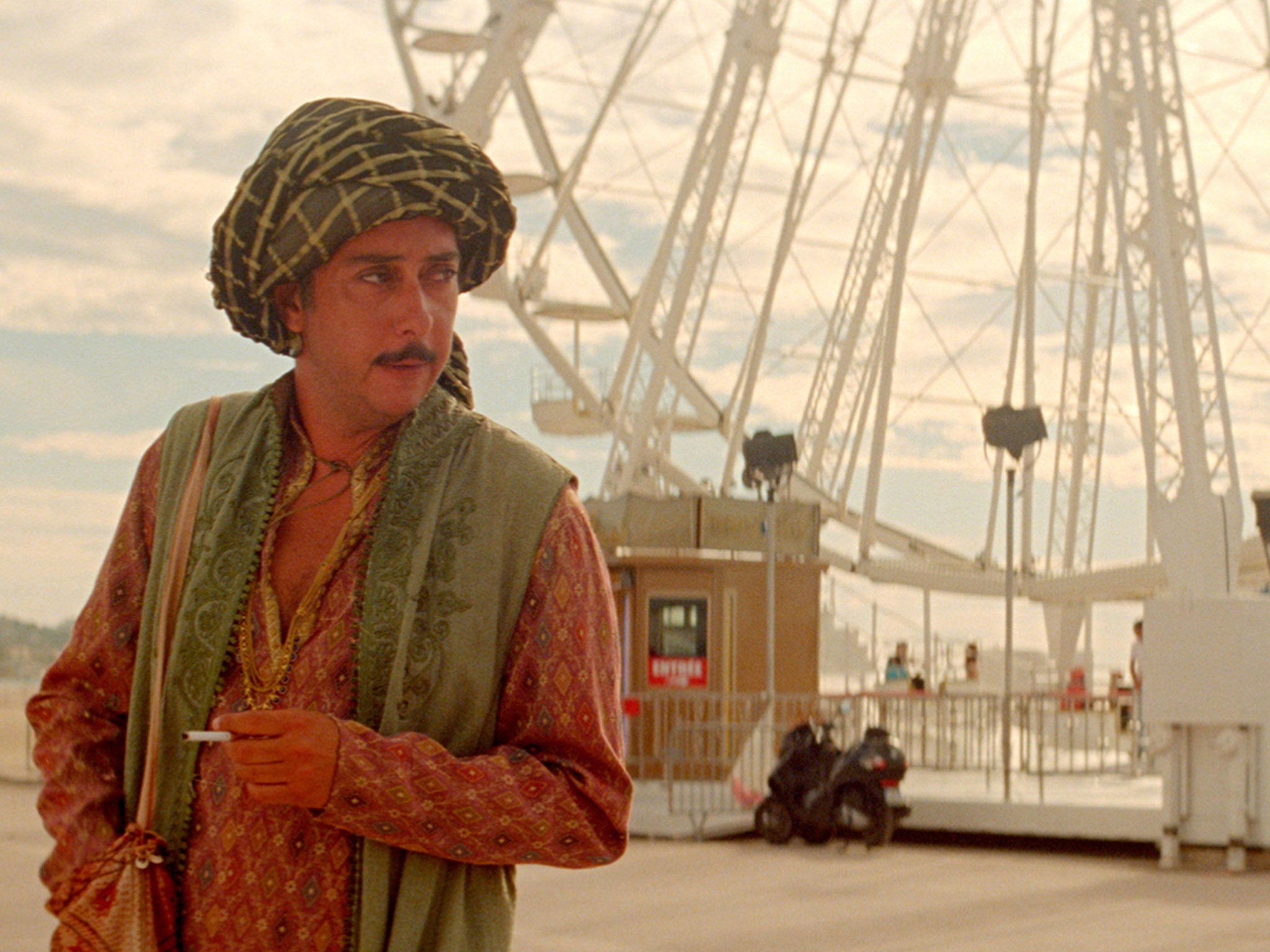Miguel Gomes interview: 'I’ve never read the whole book'
The celebrated director talks to Kalem Aftab about his new film telling the story of the Portuguese economic meltdown

Your support helps us to tell the story
From reproductive rights to climate change to Big Tech, The Independent is on the ground when the story is developing. Whether it's investigating the financials of Elon Musk's pro-Trump PAC or producing our latest documentary, 'The A Word', which shines a light on the American women fighting for reproductive rights, we know how important it is to parse out the facts from the messaging.
At such a critical moment in US history, we need reporters on the ground. Your donation allows us to keep sending journalists to speak to both sides of the story.
The Independent is trusted by Americans across the entire political spectrum. And unlike many other quality news outlets, we choose not to lock Americans out of our reporting and analysis with paywalls. We believe quality journalism should be available to everyone, paid for by those who can afford it.
Your support makes all the difference.Miguel Gomes, director of Arabian Nights, sounds like a naughty schoolboy when he admits: “I have to be honest – like 99.99 per cent of people, I’ve never read the whole book. It’s almost impossible!” Such a lax attitude becomes more reasonable as it becomes apparent that not one page of the One Thousand and One Nights text has moved directly from page to screen.
The book is the collection of tales compiled during the Islamic Golden Age in Arabia. It’s a sprawling epic, put together over many centuries, with roots in Arabia, Persia, Egypt, Mesopotamia and India. The primary link between all the tales is that they are framed with the same device: a maiden Scheherazade avoids being executed by her husband, the Sasanian king Shahryar, by telling him stories each night, but never finishing them, so that he must wait until the following night to hear the next part. Over the centuries, this has given rise to tales within tales, tiny characters from one story become major players in other stories, told in prose, poetry and song. There is comedy, drama and tears. Arguably it’s the precursor to the Marvel universe.
It was this structure rather than the content that excited the Lisbon-born director. “The Arabian Nights texts gave me the possibility and the desire to have a very surreal film,” he says. “My compromise was to be faithful to a certain feeling that comes out of the book. For me, this is concentrated in surrealism. It has a very baroque structure, stories within the stories within the stories, and then there are certain dialogues that appear that come from the book.”
In 2012, Gomes was riding high on the success of his award-winning black-and-white third film Tabu. But this happiness soon met tragedy: “I was thinking of making a film in Mexico, after Tabu, but then when the economic crisis started to take hold in Portugal and I could see where the society was going and changing, I thought: I cannot go away, I have to stay here and do something.”
The graduate of the Lisbon Superior School of Theatre and Film did the only thing he could. “I’m a filmmaker and I was obliged to do a portrait of what was happening in my country, in my society, at that moment, I could not do otherwise.”
The situation in his country is a mess, he says: “There is a kind of dialogue that is not going well, from the north to the south, because people don’t understand what is happening, they are too far away from each other. So in the south, the people are saying that the people in the north are a bunch of Nazis, which is not quite true. People in the north think those in the south are lazy guys who do nothing and just want money, and that’s not true either. It’s much more complex.”
Gomes and a team of researchers began interviewing people, collecting stories and creating tales based on this first-hand reality, in the manner of Scheherazade. At the time Portugal’s government were implementing severe austerity measures in an attempt to avoid a second international bailout. While cutting government spending on the people, the government also had to bail out the nation’s largest bank to the tune of €4bn.

Soon Gomes had enough material for a television series: “I made three films, not just one, because I don’t think there is only one way to look at the crisis, one perspective. One of the things that I like in the film was trying to present changes of point of view all the time.”
“The first volume is the beginning, it’s the set-up of the idea of trying to film the soul of Portuguese society during one year and at the same time, creating tales, with this kind of surreal feeling you have in One Thousand and One Nights. You have many narrators, different stories and the film is always shifting,” Gomes explains. “The second volume is darker, where you are in hell. It’s the most violent film and has longer and less stories. In the third volume, Scheherazade reacts to the second one, she is in crisis.”
The film was shown in three parts at Cannes last year, and was immediately hailed as a masterpiece. Dennis Lim in Film Comment magazine wrote that it was "an up-to-the-minute rethinking of what it means to make a political film today".
‘Arabian Nights: Vol. 1 The Restless One’ is out on 22 April; ‘Arabian Nights: Vol. 2 The Desolate One’ is out on 29 April; ‘Arabian Nights: Vol. 3 The Enchanted One’ is out on 6 May
Join our commenting forum
Join thought-provoking conversations, follow other Independent readers and see their replies
Comments